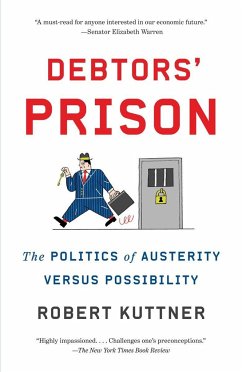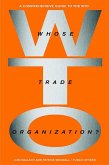Since the financial crisis of 2008, the conversation about economic recovery has centered on the question of debt: whether we have too much of it, whose debt to forgive, and how to cut the deficit. But what if we've been asking the wrong questions all along? In Debtors' Prison, leading economic thinker Robert Kuttner makes the most powerful argument to date that with austerity as a solution all we're doing is jailing ourselves. Just as debtors' prisons once prevented individuals from resuming a productive life, austerity measures shackle, rather than restore, economic growth. This is the simple truth belied by the sound bites of presidential elections and fiscal-cliff debates, and the perverse policies of the European Union. Blending current affairs with economics and history, from Robinson Crusoe author Daniel Defoe's campaign for debt forgiveness in the seventeenth century to the two world wars and Bretton Woods, Kuttner uncovers the double standards in the politics of debt. Lucid, authoritative, provocative-a book that corrects the economic conversation and encourages a search for new solutions.
Hinweis: Dieser Artikel kann nur an eine deutsche Lieferadresse ausgeliefert werden.
Hinweis: Dieser Artikel kann nur an eine deutsche Lieferadresse ausgeliefert werden.








